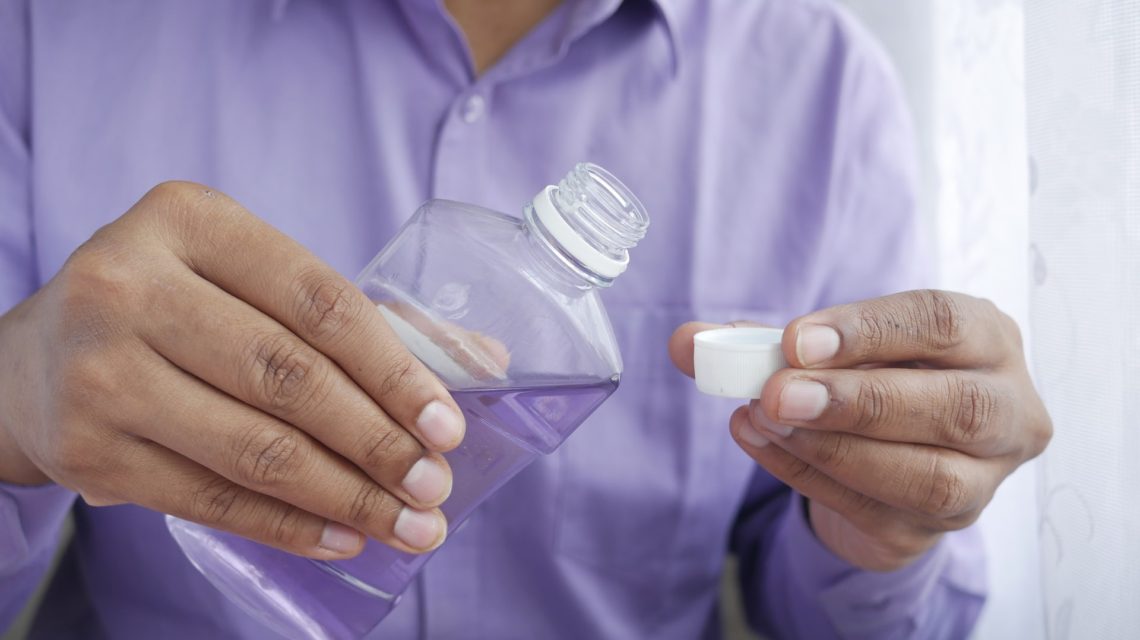Most people use mouthwash to eliminate bad breath. However, mouthwash can do a lot more for your mouth than just make it smell nicer. Depending on which type of mouthwash you choose, it can even help kill the bacteria that can cause cavities and tooth decay. Want to know more? Mouthwash 101 is now in session!
What are the benefits of using mouthwash?
Mouthwash—also sometimes called a mouth rinse or oral rinse—is an oral rinse formulated to boost your dental health. You should use mouthwash after brushing and flossing your teeth. However, because mouthwash could rinse away the fluoride from your toothpaste, it’s best to wait about 30 minutes after brushing or use a fluoride-enriched mouthwash.
There are two main types of mouthwashes:
- Cosmetic mouthwashes are mainly used to freshen breath.
- Therapeutic mouthwashes can help fresh breath, but also contain specific ingredients aimed at killing bacteria in the mouth.
Depending on which type of mouthwash you choose, benefits may include:
- Fighting bad breath
- Helping eliminate tartar and plaque buildup from areas that are difficult to reach with toothbrushes and floss
- Eliminating bacteria that can cause gum disease, cavities, dry mouth, and tooth decay
- Strengthening teeth with fluoride
How effective is mouthwash in killing bacteria?
When used properly, mouthwash can certainly help keep harmful bacteria out of your mouth. However, only therapeutic mouthwashes provide germ-eliminating power.
Mouthwashes designed to kill bacteria contain antiseptic ingredients such as menthol, eucalyptol, or thymol. There are also other mouthwashes that use natural ingredients like aloe vera, baking soda, coconut or tea tree oil to remove germs.
Some mouthwashes also include alcohol as an ingredient. While alcohol is effective at killing bacteria, for some people it can cause an unpleasant burning sensation. Additionally, alcohol in mouthwash can irritate sensitive teeth or gums. And for those prone to dry mouth, alcohol slows saliva production, which can make symptoms worse.
Is mouthwash without alcohol effective at killing germs? Definitely. While choosing an alcohol-containing or alcohol-free mouthwash is really a matter of preference, we suggest that people with sensitive teeth or those prone to dry mouth lean towards alcohol-free therapeutic rinses when possible.
Oral Health Care in Flagstaff, Arizona
Is mouthwash effective at helping keep your mouth healthy? Most certainly! However, it’s important to read the manufacturer’s label on the product you are purchasing and consult your dentist to fully understand what it can do.
And remember, using mouthwash should never take the place of brushing and flossing. Think of it this way: if your daily hygiene practice was a television show, brushing and flossing would be the lead actors and mouthwash would be the special guest star.
Do you need some assistance in finding the right mouthwash for your oral health care regimen? Call Country Club Dental in Flagstaff for an appointment today at 928-526-4314. We’ll answer all of your questions and help you choose the right rinse for your mouth.
Photo by Towfiqu barbhuiya on Unsplash


